Techie, musician, author of bestseller 'Masala Lab' - meet Krish Ashok at DesignUp 2022
What is the future of work? What are some trends in music and foodtech? How does one keep oneself creative? Here are inspiring insights from a multi-talented techie artist!
Krish Ashok is the Global Head of Digital Workplace at TCS. He helps large organisations reimagine the future of work for their employees via approaches like social collaboration, persuasive design, digital nudging, knowledge experiences, and workplace creativity.
Krish is speaking at the DesignUp 2022 conference in Bengaluru on September 17-18. As a media partner, see YourStory’s earlier coverage of DesignUp conferences and sessions from 2021, 2020, 2019, 2018, and 2017.
A graduate of Delhi University, Krish is a columnist, classical violinist, guitarist, and cellist. His music is accessible on Soundcloud here. He also writes about Indian food, and his book — Masala Lab: The Science of Indian Cooking — has become a bestseller.
See YourStory’s Book Review section with takeaways from over 340 titles and our d-Zen (‘Design Zen’) section for more design resources.
Krish joins us in this interview on the future of work, food trends, creativity tips, and advice for startups.
Edited excerpts below:

YourStory [YS]: How was your book received? What were some of the unusual responses and reactions you got?
Krish Ashok [KA]: The book was surprisingly well-received. It has been a best seller in the food category on Amazon ever since it's been launched.
The most surprising response has been from professional chefs who have regularly gifted my book to their friends and families. When I originally set out to write the book, my target audience was tech nerds learning to cook. But it has sold very well, even among people who are excellent cooks.
The most unusual response I got was from a British gentleman who expected to find "curry recipes" but found none in the book, and thus, rated my book 1 out of 5 on Amazon.
YS: In the time since your book was published, what are some notable new culinary insights you have come across?
KA: The field of Neurogastronomy, which seeks to understand how our brains process flavour, has made huge strides since the time I wrote the book.
It's heartening to realise that one of the broad theses in Masala Lab is the idea that food is deeply personal, and we all experience flavour based on the unique nostalgia of eating specific things while growing up. It's nearly impossible to be truly objective about food.
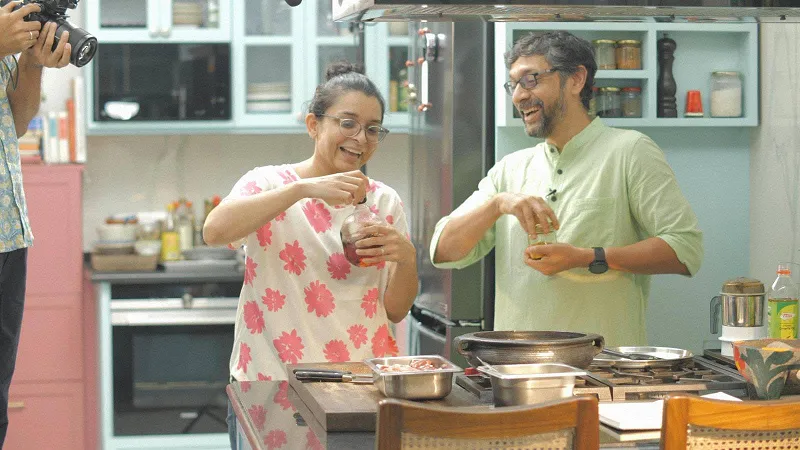
YS: That’s quite a creative streak you have – from an IT workplace to music and writing about food. How did that come about?
KA: I was a semi-professional musician (violinist) when I joined IT, and I joined IT because it gave me more leisure than other professions that let me continue with my hobbies.
Writing is something I've been doing for a long while now. So that's just another mechanism for expressing creativity.
YS: What led you to write the Masala Lab book? Can you guide us through the creative process?
KA: As someone who has been cooking since when I was 20, I have always found recipes to be a very limiting and inefficient way to document food. And, as a software engineer, metamodels and algorithms are the Lego blocks I use to understand the world.
It turns out that no one has documented the science of Indian cooking, so the niche market existed, and then, of course, the pandemic left me with more time that I saved from not having to commute to work. So, put all that together and you get Masala Lab.
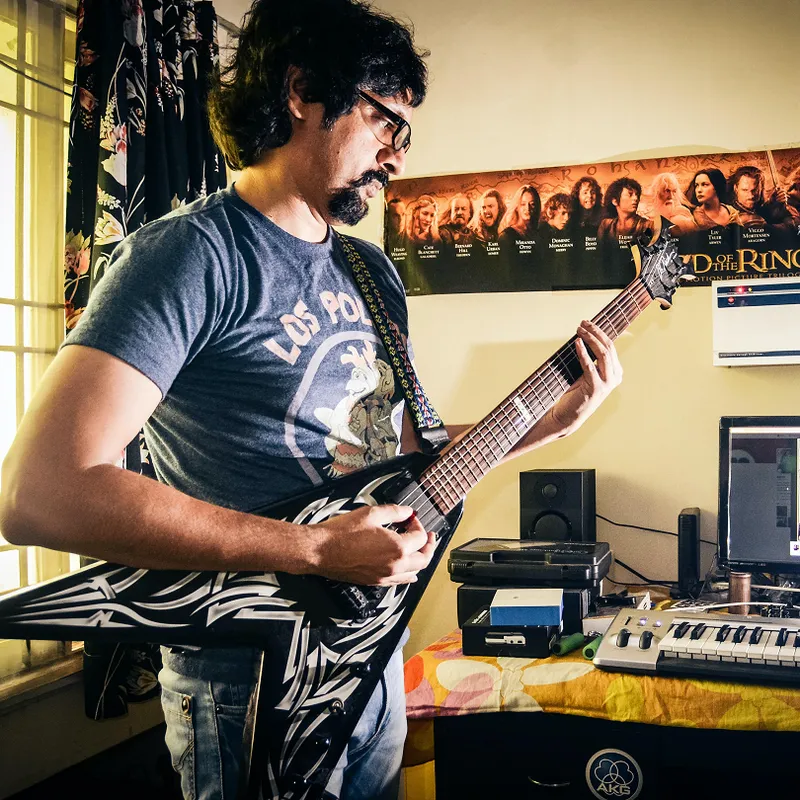
YS: Tell us more about the music you play. What are your influences, and how does Soundcloud help in your journey?
KA: I grew up learning the Carnatic classical violin. The moment my teachers started telling me that there is no form of music more complete and advanced than Carnatic music, I was pretty sure that was untrue.
I discovered rock, jazz, western classical, and more crucially, folk music from across India. For me, Soundcloud is a place to experiment with fusing multiple styles of music without the commercial pressure of making it mainstream.
YS: I guess a lot of it comes down to curiosity and passion. What advice would you give to people on how to become more observant and curious and follow their passion?
KA: Most things are fantastically interesting if you try and understand them from first principles. Let's even take food, for instance, something that most people just take for granted (mostly in the sense that someone will make it for them).
But think about it - all food is one form of life killing and eating another form of life. And when plants try and biochemically defend themselves from being eaten, it's called flavour because flavour molecules come from plants defending themselves against other forms of life.
When you know this, the next time you eat a salad will be a mind-blowing moment of contemplation and mindfulness. You can do this with anything you do. Just keep digging till you get to the first principles.
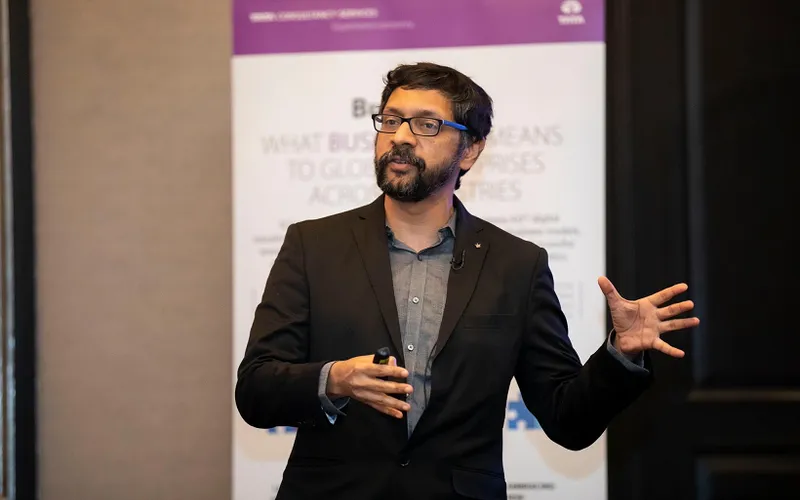
YS: Are there plans to add an online companion for the book? How are you engaging with audiences after publication?
KA: The Masala Lab’s Instagram handle (@_masalalab) is more of a social companion to the book, but I am planning for a longer-term archival of Indian food science knowledge.
YS: Is there a particular age when people are most creative, or can the creative bug strike you at any time?
KA: I'd like to think age has very little to do with it, but I can't ignore the fact that children are generally more unburdened with the banalities of scrounging around for a livelihood and that mind space is often better for creativity.
That said, adults can (and sometimes need the privilege to) create the conditions where you can think creatively. One thing I've learned over time is to always write (or record) things down when the idea strikes because our brains are terrible at remembering great ideas afterwards.
YS: When does it make sense to keep several side projects running – and when should one quit and move on to a new passion full-time? How to make the right decision?
KA: There is no formula at play here. I think side projects should give you joy first and foremost. If they don't, just stop. If additionally, they help you get smarter, more creative, etc., then that's a bonus.
From a time management standpoint, it really is about putting constraints as well. If your side projects get in the way of doing basic things like household chores or engaging with your family and friends, you are doing it wrong.
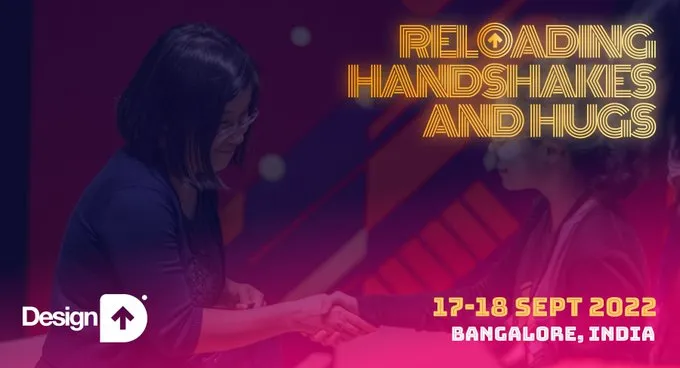
YS: How did the pandemic affect your work and other activities? How did you cope?
KA: On the pro side, it saved me time commuting, and I spent that extra time writing Masala Lab!
On the con side, it reduced interactions with friends and coworkers, and I think that has had a deleterious effect on how creative teams collaborate in general. Video calls are just not the same thing as a bunch of people with a whiteboard.
YS: What is the future of hybrid work? How are companies redesigning their workspaces in this regard?
KA: It's fairly evident that some form of hybrid is the future. The smartest people on the planet will not want to work in offices nine to five.
Companies will need to build a new muscle in their mid-level managerial staff to manage projects and people in this new reality.
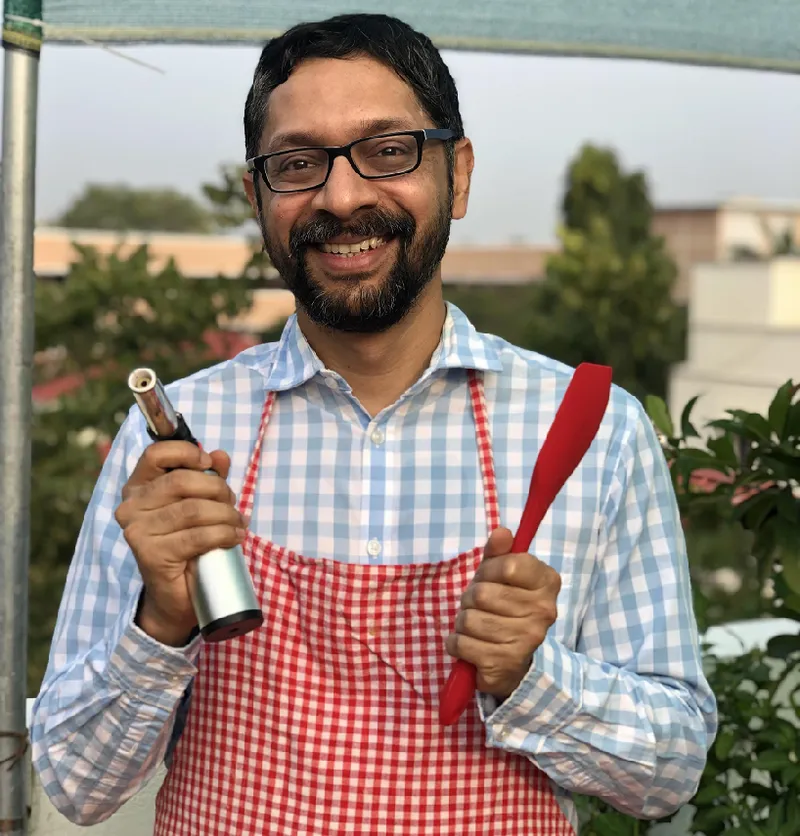
YS: Seeing urban pollution and flooding these days, what are your thoughts on reimagining habitats and lifestyles?
KA: I am not an expert on this, but in general, I don’t think the rich lecturing the aspiring poor on sustainability or leading minimalist, less-consumerist lifestyles is going to work.
I think we will have to collectively design better ecosystems for upcycling and recycling stuff while simultaneously incentivising more carbon-neutral behaviours.
YS: What are some new trends and tricks you are coming across in Indian cuisine?
KA: I think the growth and popularity of "productivity" foods (spice mixes, prepped gravies, etc.), and the emerging trend toward plant-based protein is pretty exciting.
The former particularly faces challenges from the older generation that believes that all food must be cooked fresh from scratch.
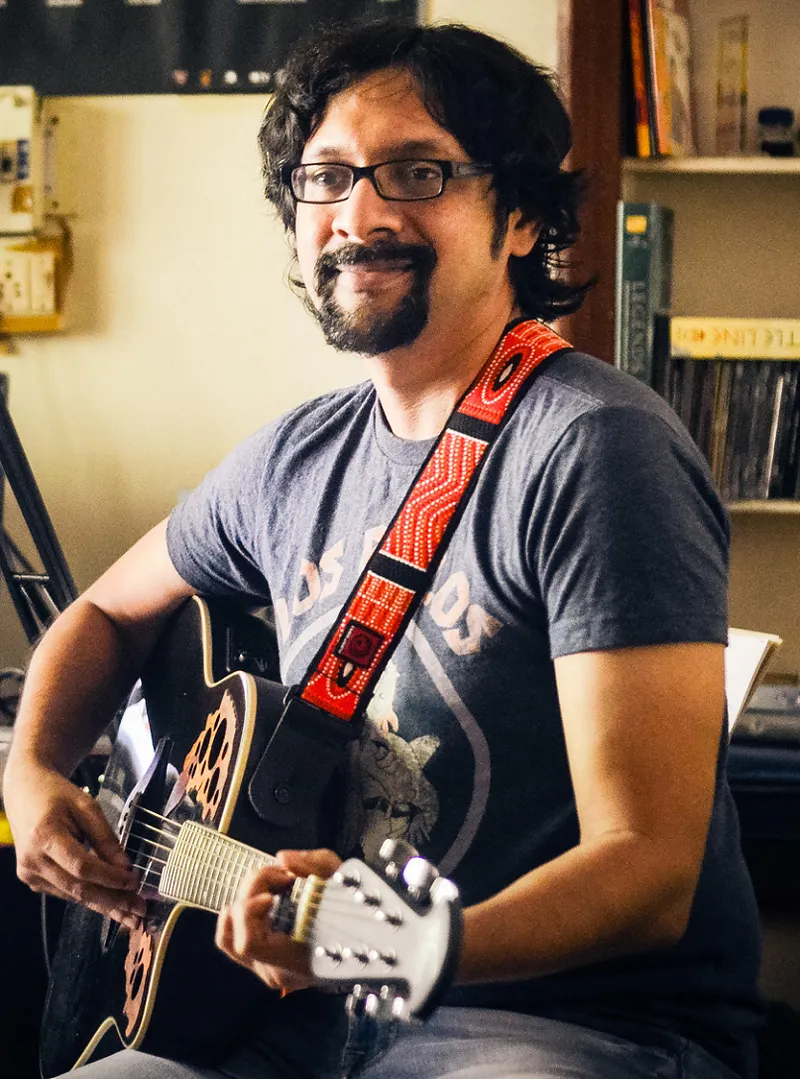
YS: What are your thoughts on ‘fusion’ food – what works and what doesn’t?
KA: I generally do not pass judgement on any kind of food. In fact, I do not leave negative reviews of restaurants or products on the internet.
This is because food is very deeply personal, and it's impossible to predict what will work for someone because it depends entirely on their flavour memories and nostalgia.
That said, fusion food becomes popular when flavours and textures from two cuisines complement rather than compete. Adding ingredients together might just be overkill, whereas figuring out what role each ingredient plays and then mixing and matching is a better strategy.
YS: We are seeing a whole range of ‘foodpreneurs’ and foodtech startups emerging these days. What does this reveal? What new opportunities and challenges arise in the food space?
KA: It reveals we have a long and exciting journey ahead. This is a part of the world with one of the greatest food cultures humanity has seen.
The sheer diversity and brilliance of every sub-cuisine in the subcontinent is something that the world is still yet to experience. But, a great food culture often also comes along with added baggage – cultural obstinacy towards change, modernity, and science. The rise of new foodtech startups reveals that it is about to change.
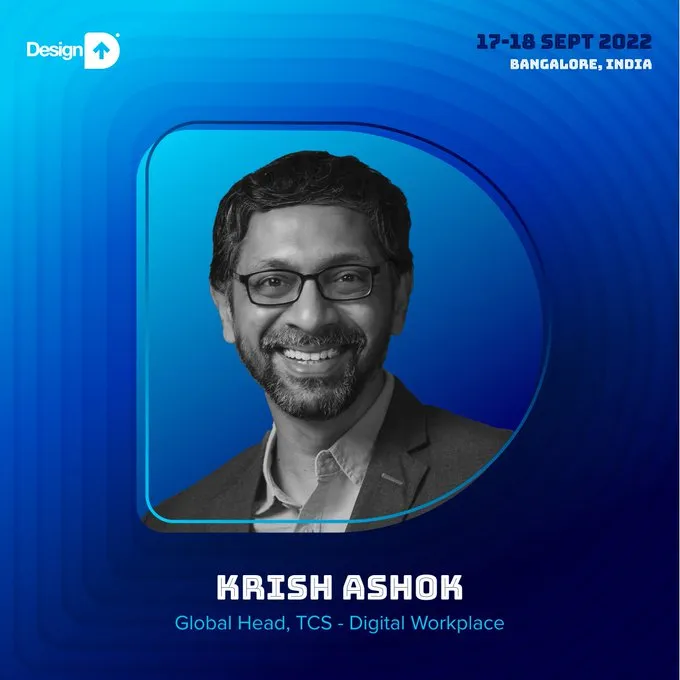
YS: What have been some of your experiences with failure and mistakes? How does one learn, cope, and move on?
KA: Failure to me is like eating at a buffet but then finding out that they've run out of dessert.
I mean, I still got to eat a lot of food. I’m happy that I got to learn new skills and apply them in the process of failing rather than moping around the final outcomes themselves.
YS: What books are you reading these days? What's on your Spotify playlist?
KA: I am reading NK Jemisin's Fantasy and KT Achaya's works on the history of Indian food.
My Spotify playlist has Billboard No. 1s from 1977 till 2022. I wrote a Python script to generate it, and I've been loving it since then!
YS: What is your parting message to the aspiring entrepreneurs and writers in our audience?
KA: Don't take yourself too seriously. Wake up every day and assume that most things you know are becoming obsolete, thanks to some entrepreneur somewhere in the world.
Edited by Suman Singh



![[Year in Review 2021] Top ten changemakers of the year](https://images.yourstory.com/cs/5/79900dd0d91311e8a16045a90309d734/collage1-1639488579193.png?fm=png&auto=format&h=100&w=100&crop=entropy&fit=crop)
![[Year in Review 2021] Amid COVID-19, these 10 non-profits created social impact this year](https://images.yourstory.com/cs/5/79900dd0d91311e8a16045a90309d734/collage-1640102486726.png?fm=png&auto=format&h=100&w=100&crop=entropy&fit=crop)
![[Year in Review 2021] Meet the top 10 techies we celebrated this year](https://images.yourstory.com/cs/2/b87effd06a6611e9ad333f8a4777438f/collage4-1639196680900.png?fm=png&auto=format&h=100&w=100&crop=entropy&fit=crop)
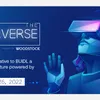
![[Year in Review 2021] Times are changing as women in tech reach new heights](https://images.yourstory.com/cs/4/bf6cd6001f6d11ec9f7c8d775ba8e1d7/women-tech-leader-1640501582312.png?fm=png&auto=format&h=100&w=100&crop=entropy&fit=crop)

![[Year in Review 2021] How women entrepreneurs pivoted during the pandemic and saw tangible results](https://images.yourstory.com/cs/4/8e7cc4102d6c11e9aa979329348d4c3e/Cover-05-1639653048479.png?fm=png&auto=format&h=100&w=100&crop=entropy&fit=crop)




